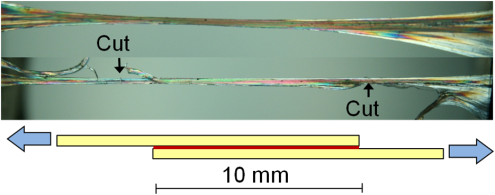Research
Age Related Deterioration of Tendon Mechanical Function
| Funding source(s): | B.B.S.R.C. |
| | Start: 01-05-2013 / End: 11-11-2016 |
| | Amount: £290,208 |

We have preliminary evidence that the interfascicular matrix (IFM) is a key determinant of tendon failure properties and fatigue resistance. We hypothesise that injury prone energy storing tendons have an extensible IFM with minimal hysteresis, leading to a structure with improved fatigue resistance. Poor optimisation of the IFM or structural changes with age may predispose individuals to tendinopathy.
This project aims to investigate the role of the IFM in modulating fatigue resistance. Using an equine model, we will compare IFM composition and mechanics between a high strain energy storing and a low strain positional tendon, correlating these data with the mechanical characteristics of the tendons.
The equine model proves an ideal energy storing tendon, with similar properties to the human Achilles. Looking specifically at this energy storing tendon, we will establish how the IFM changes with ageing and how this influences fatigue resistance. Finally, we will use knockout models and enzymatic techniques to manipulate IFM composition, and establish how this influences our findings.
Data will provide greater understanding of how injury and ageing influence tendon mechanics via the IFM and may provide insights into methods of limiting injury risk. This will inform treatment practices, and facilitate the design of targeted drugs or treatments for the IFM. It may also be possible to develop training protocols to encourage appropriate IFM development, with the long term goals of decreasing the incidence of tendon injury and improving recovery rate post-injury.


